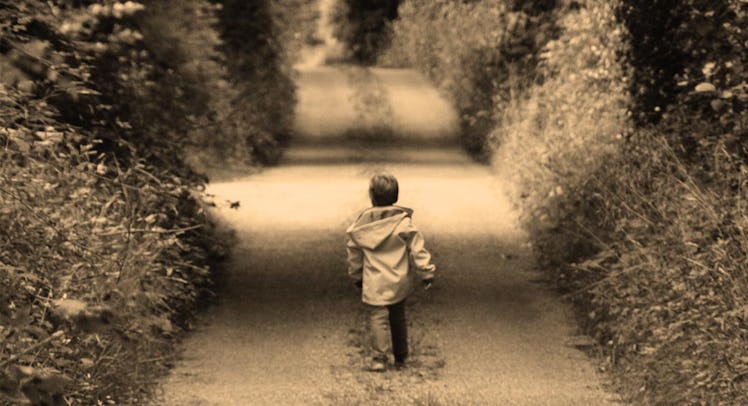How Do I Protect My Kid From the Loneliness Epidemic?
A new study suggests Americans, and particularly young Americans, are more lonely than ever before. But how do I keep my kids from experiencing it?

A new survey of 20,000 Americans released by global health provider Cigna suggests that adults from 18- to 22-years-old are lonelier than anyone else in the country. There’s a loneliness index and younger people are topping it out. And, no, it’s not just a touchy-feely concern. Loneliness is like a death in slow motion. It leads to poor sleep, diminished immune response, and even cognitive decline. Loneliness may not kill precisely, but it makes living life a considerably less pleasant experience. And it’s just sitting there, nestled in the late teens and early twenties, waiting for my son.
I’m the father of a young kid that aches for companionship and often fails to find it. If loneliness is a modern problem for modern young people, it feels likely to be my son’s fate — at least for a while. It’s a very real concern, one that I had prior to reading the study, but one that is certainly exacerbated by trends and data. And I’m keenly aware there’s no easy solution. There’s no patch. There’s no pill. There’s just the broader world turning in on itself and my kid, maybe alone, looking for a hug.
RELATED: How to Scientifically Measure Loneliness
It’s not like the kid isn’t trying. I see the heartbreak happening already: My energetic 7-year-old stands at the edge of our front lawn, his toes as close to the ditch as possible, barely hewing to our parental boundary. He calls across the road to an older neighbor kid asking if he wants to play but receives a shrug and a mumble. At the playground, he attempts to lead a wild game with some local kids his age. No one plays. So he’s increasingly alone, connected to his peers by a fraying thread. Sometimes, if he’s lucky, a kindly teenager will spend time with him. They get it. They know the feeling.
I get it too. I was a lonely kid and, I think, a lonely adult. My childhood loneliness was a product of divorce and the constant relocation of joint custody. I spent my time scrounging around the scrub oak and sage of dusty southern Colorado hills while my parents lived their own lives. As an adult, I get nervous in social situations. My default is my own bed and Netflix even though I do enjoy the company of others. I’m one of the 43 percent of Americans in the Cigna study who “sometimes or always feel that their relationships are not meaningful.” I suspect we all want to break that cycle, if not for ourselves, for our children.
But what can I do? Teach my kid to be even more outgoing? I fear it would only make him even more of an acquired taste.
Perhaps the answer to my son developing more meaningful relationships and social interaction is the answer to finding the same in my own life. What we have in common is a distinct reticence to say “yes,” even to people we like.
MORE: How to Fight New-Dad Loneliness
It’s one thing to call across the street, or suggest a game, only to come home in tears when spurned. It’s another thing entirely to hear the call ourselves and follow. My boy doesn’t like saying yes, really. He likes things his own way. It’s the same for me. I’m happy to invite others into my own home, but my finger reflexively strain for the letters N and O when receiving a text invite to get together with friends. So ours is perhaps a pathological isolation born out of an impulse that we don’t really understand.
Maybe we have to share the path out of loneliness together. Maybe his way around loneliness is mine as well. If I say yes more often to friends and family, he’ll probably see the power of deference in building relationships. What’s more, it’ll make it easier for me to credibly provide him with guidance — to encourage him to follow from time to time.
Still, though I understand that this would only help to make me and my son healthier, I struggle. Yes has a momentum that I often lack. In all likelihood, I wouldn’t make a change just for myself. But there’s my son at the edge of the lawn and I want more for him. I want to ensure, at the very least, that his loneliness is not inevitable.
This article was originally published on